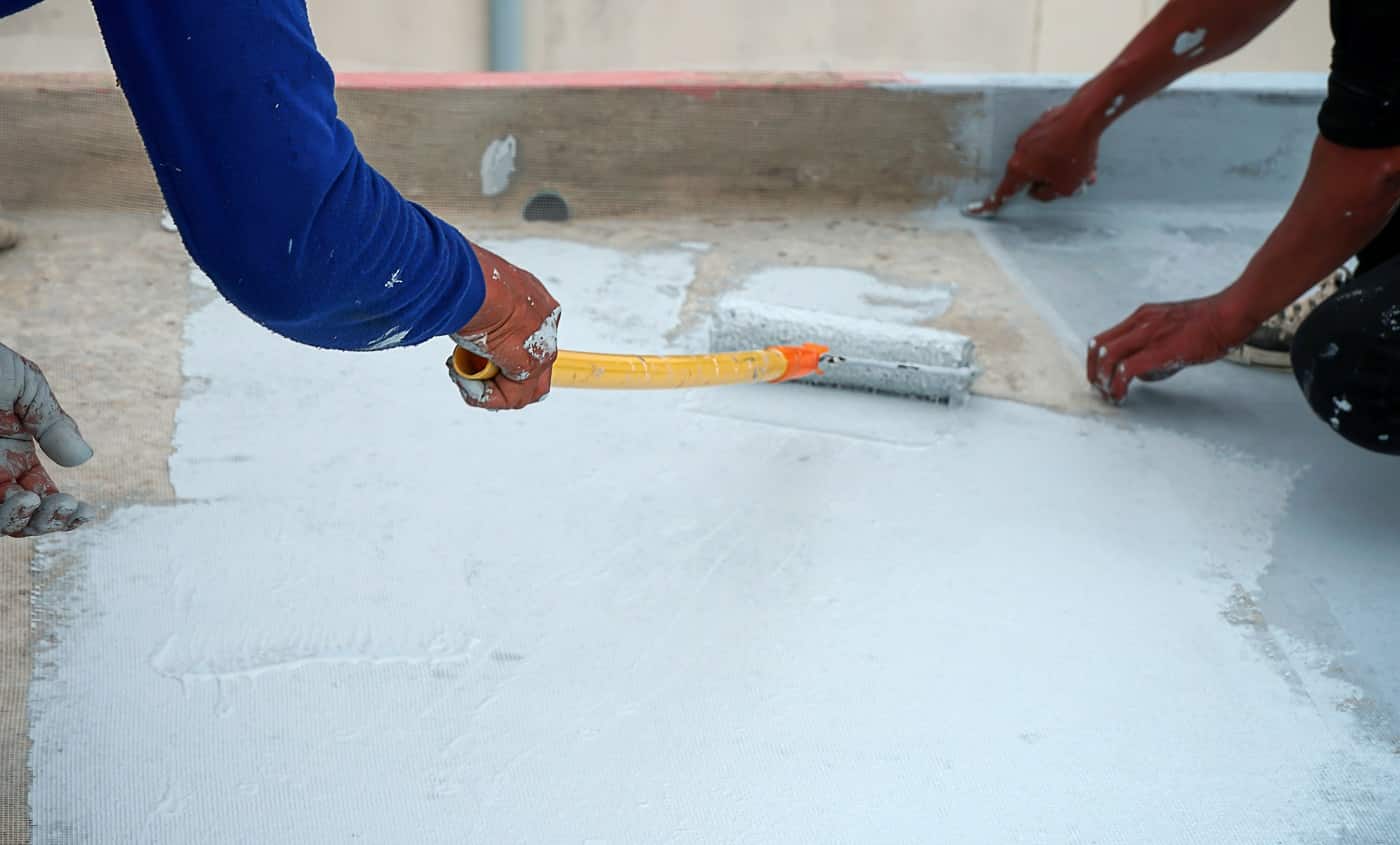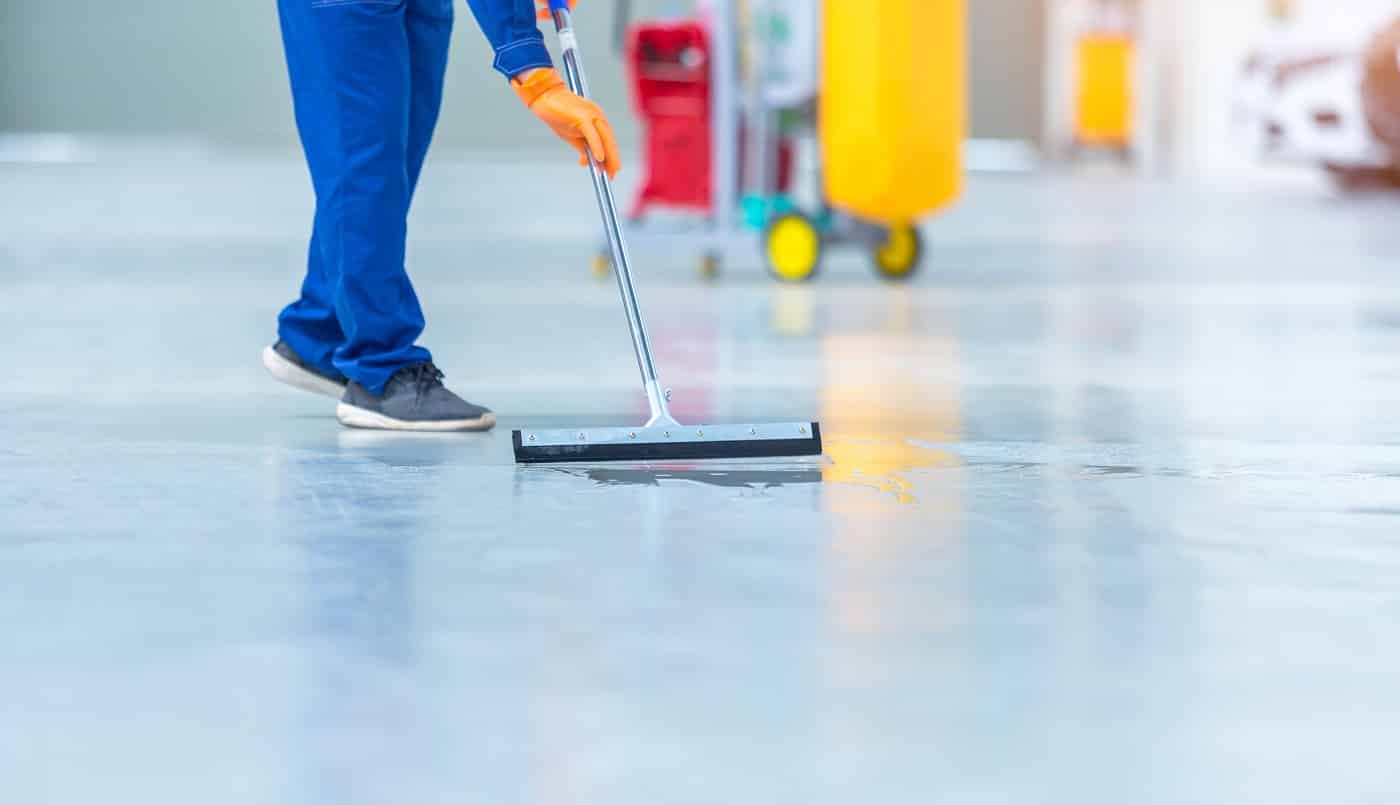Have you just stumbled on the idea of waterproofing surfaces through epoxy?
![Waterproof Epoxy 101 [Is Epoxy Waterproof?] Epoxy paint on concrete floor for water proof protection industrial warehouse in japan](https://homesthetics.net/wp-content/uploads/2021/09/Waterproof-Epoxy-101-01.jpg)
Recently, the popularity of using epoxy for covering materials has resurfaced. Hence, we thought about sharing some information about working with it.
When it comes to epoxy, most people think of it as only an adhesive. Apart from its brilliant gluing capacities, epoxy is also an excellent coating material. It can be an overlay on anything from a bathtub to your kitchen floor to reduce corrosion and damage.
However, its quality as a waterproofing material remains lesser-known. And, with proper techniques, epoxy can become an instant favorite for the job.
If you are one of those people who have questions about the water resistance of epoxy, hop on to get your answers. Also, check out the new project ideas to start one as soon as possible.
On that note, let us begin unraveling the queries on epoxy!
All You Need To Know About Waterproof Epoxy

Is Epoxy Waterproof?
Let's start by answering the burning question. Yes, when used properly, epoxy can make a surface water-resistant. Moreover, using a layer of epoxy can create a barrier against corrosive chemicals.
Because of its waterproofing capabilities, epoxy is often used as a coating on floors of commercial buildings. Even swimming pools have an added layer of it as a beneficial sealant.
However, you need to be very careful to buy the correct epoxy. Generally, the claim of being a waterproof epoxy is mentioned on the label of a bottle. Hence, picking up an already tested epoxy would give you much better results.
Try to look for a water-based epoxy or waterproofing epoxy for your intended job. If possible, it's always good to consult with an expert present at the store to get their opinion about the product.
Having said that, we do think that epoxy is seriously underrated when it comes to waterproofing surfaces. Sure, you might have to experiment a bit, but it will be a worthy project.
How To Properly Use Epoxy For Waterproofing?
To ensure appropriate waterproofing with epoxy, here are some points that you should note:
-
Clean The Surface Properly
People often end up blaming the waterproofing capabilities of epoxy due to improper application. Before you start the application, it's essential to clean the surface thoroughly. This includes getting rid of dust, oil, and water.
Moreover, it's necessary to let the surface be absolutely dry. Many people try to waterproof a wet surface, but we would suggest against it. Also, as you will need to apply multiple layers of epoxy, make sure not to get dirt between them.
-
Health Of The Base Material
Even though epoxy is a strong sealant, the health of the base layer plays a vital role in lasting capabilities. You cannot expect a cracked wooden floor to maintain the same level of integrity as a brand new surface. Hence, you may want to fix the base material before applying the epoxy.
This is especially important for wooden surfaces, as they tend to get damaged sooner. Besides, you may want to look for more flexible epoxy options to make the process easier.
-
Proper Application Of Epoxy
One of the most common mistakes committed while waterproofing with epoxy is the application of a thin layer. Every epoxy comes with instructions about the adequate amount that needs to be used. In the case of waterproofing, this is usually a thick layer to make the seal extra tight.
Additionally, you may need to apply multiple layers of epoxy to make it fully effective. Hence, make sure to check the application instructions before buying the materials.
Moreover, choosing the correct application tool is also quite vital as it may affect the amount of epoxy that ends up on the surface. So, be sure to lay it on thick for better water resistance.
-
Choice Of Epoxy
On your visit to the hardware store, you will be greeted with numerous types of epoxy resins. All of them might look tempting, but you will need to find the one that will work best for you. Hence, a handy tip from our side is to know more about the base material.
We suggest you pick up an epoxy that is either water-based or is meant for waterproofing. Manufacturers often mention it on the bottle. Additionally, you may also look for the features stated on the packaging. Also, make sure to check the type of surface that works for the particular epoxy.
-
Proper Curing Time And Environment
Usually, most epoxy resins take around seven days to cure. However, it will depend on the type of epoxy that you are buying. After the application is over, it needs to receive a proper environment for curing. Adhering to the instructions gives anticipated results, and you wouldn't need to reapply epoxy for a long time.
Advantages Of Using Epoxy For Waterproofing
If you are new to using epoxy, you are at the right place to know about its advantages as a waterproofing material. Here are some of the strongest points about epoxy that you should know about:
-
Works With Various Substances
Are you tired of buying different sealants for various base surfaces? Epoxy comes as a miracle since it can work with numerous materials. It works well on wood, metal, plastic, and even fiberglass. Some even use it on bare concrete or outer walls of their houses as a waterproofing layer, and it seems to do the job.
You may need to experiment with the thickness of the coating and the application technique to get it right. But, it will most likely be a long-lasting sealant on most surfaces.
-
Easy To Use
Epoxy is a fuss-free substance, and it is easy to use even for a DIY beginner. It can be applied with a brush, roller, or any tool you may find comfortable. Besides the usual protection measures needed to work with it, there aren't many requirements.
Most manufacturers clearly state the instructions. However, the only thing that needs to be perfect is the curing time and temperature. But that’s pretty easy to follow, so you don’t really need to worry about anything.
-
Corrosion Resistant
An epoxy wouldn't just give you a waterproof surface. Alongside, you will also get the benefit of corrosion resistance. This feature prevents damage-causing chemicals from getting to the base material, and is especially helpful for things like wood which are easily affected by harsh substances.
Moreover, epoxy also helps to delay the usual wear and tear seen on a surface. This is particularly true for waterproofing outdoor surfaces like swimming pools or lawn furniture, as they may get easily damaged from heat and rain.
-
Durability
A prominent feature of epoxy resin is its durability. With proper curing time and environment, you practically create a long-lasting hard layer. Also, epoxy doesn't require frequent reapplications. Even busy flooring may only need a touch up every 3-4 years. Hence, the lasting protection of epoxy makes it a perfect choice for those who detest a yearly chore.
Projects For Epoxy Waterproofing
If you are a DIY-er, then you must always need a new project. Hence, to get you started, here are some items that benefit from epoxy waterproofing.
-
Swimming Pools
Swimming pool surfaces always need waterproofing as the treatment chemicals and heat can cause lasting damage. So, covering it with an epoxy layer will prevent most of the probable damage. Also, frequent reapplications after 3-4 years will keep the pool healthy and good-looking.
-
Commercial Or Personal Flooring
Floors tend to get damaged due to many things, and serious ones can cost you a lot. Hence, applying a thick layer of epoxy can protect against damage, especially from water or other liquids. Moreover, it's great for wooden floors as the thick layer also prevents damage caused by excessive pressure or sharp objects.
-
Kitchen Countertop And Floor
When it comes to household damage, the kitchen is one of the most common places to drop things. Most of us have experienced our hearts stopping when the fork drops on the beloved wood flooring. But a proper application of epoxy can put an end to it. Moreover, it will keep your surfaces stain-free even if you mistakenly drop a bowl of tomato soup.
Epoxy Resin Frequently Asked Questions
Here are answers to some further questions that you may have in mind while waterproofing with epoxy.
How Waterproof Is Epoxy Resin?
Even though we cannot tell you the exact waterproofing capacity of epoxy, the substance is definitely resistant to water. On application of an adequate layer of it, the surface wouldn't be affected by moisture or liquid. Moreover, epoxy also prevents chemicals and corrosives from seeping into the surface.
Will Epoxy Resin Waterproof Plywood?
Yes, epoxy is one of the best ways to waterproof plywood. However, while buying the epoxy, make sure to check if you can use it with wood. The epoxy works as a laminate on wooden surfaces and helps to deter water for a long time. Also, it provides one of the smoothest surfaces by filling out any holes or cracks.
Is Epoxy Resin Suitable For Outside?
You can use epoxy to waterproof outdoor surfaces. As most epoxy is UV stable, the coating does last long. Nevertheless, you will have to ensure that the epoxy layer gets cured properly for the waterproofing to work.

Final Words: Should You Go For Epoxy Waterproofing?
To give you a simple answer, yes, we would definitely recommend going for waterproofing by epoxy. This great substance has surprised us with its capabilities. As more people come to learn about its versatility, we’re sure you’d love to test it out on new projects.
Moreover, we appreciate the fact that it's a readily available substance. Most hardware stores contain one or more variants, and the salesperson will surely guide you to find the right one. Also, it leaves a pleasing glossy surface that looks wonderful!
However, you must remember that working with epoxy requires some precautions. This includes wearing a pair of thick gloves, goggles, and a respiratory mask. You can also check the packaging for more specialized instructions.
Now, it's time for you to go and find a surface that you would love to waterproof. In case of any queries, come back to us, and we will surely help you out.
Till then, have fun and stay safe!
Related Articles
5 Best Epoxy Pool Paint | Buyer’s Guide and Reviews
9 Best Glue for Metal to Wood [Reviews & Buyer’s Guide]
9 Best Varnishes for Wood [Reviewed & Buyer’s Guide]
Sanding Epoxy Resin Guide 101 [All You Need to Know]
11 Best Bar Top Epoxy [Reviews & Buyer’s Guide]
What is Resin and How It’s Used
10 Best Epoxy for Plastic Today
Totalboat Resin Epoxy 101 | Reviews + Buyer’s Guide
How To Make Resin Dice 101 [All You Need to Know]
How To Make A Resin Geode [Complete Guide]
Art n Glow Resin Review [All You Need to Know & Buyer’s Guide]
Alcohol Ink and Epoxy Resin 101 [All You Need to Know]
How to Color Clear Epoxy Resin [Coloring Resin
How To Fix Radiator Leak With Epoxy+ Best Radiator Repair Epoxy
Epoxy Garage Floor 101 [All You Need to Know]
Mold Release Guide + Best Epoxy Release Agents
Surfaces Resin Won’t Stick to [All You Need to Know]
Heat Resistant Epoxy 101 [A Guide for High Temperatures]
Epoxy Cement Guide 101 [How to Repair Concrete with Epoxy]
How To Mix Epoxy 101 [Measuring & Mixing Epoxy Resin Guide]
How To Harden Sticky Resin [Uncured Epoxy Solutions]
